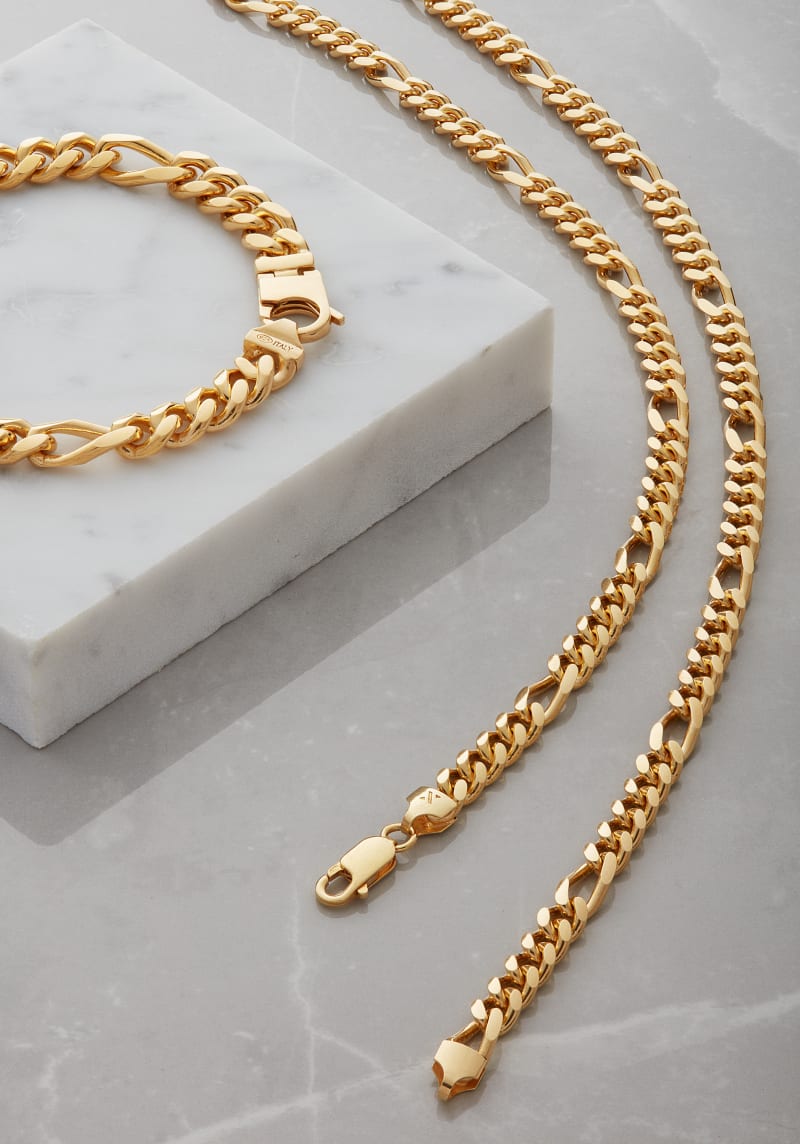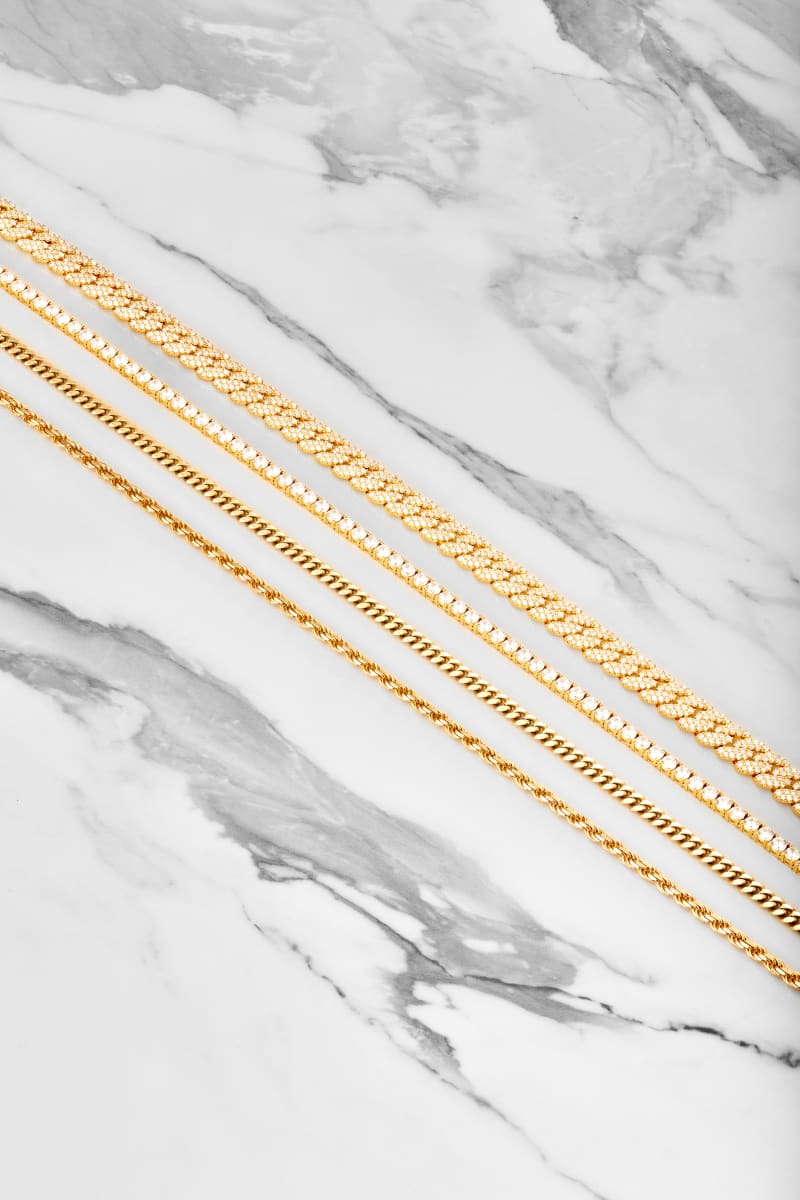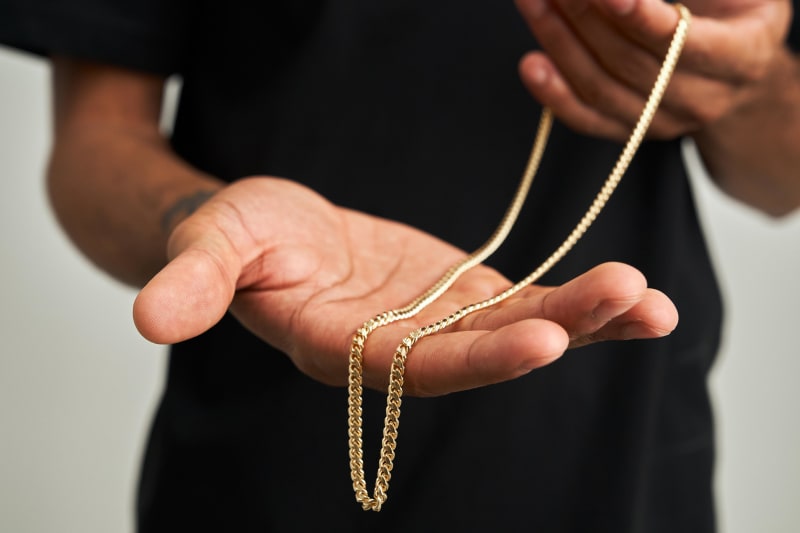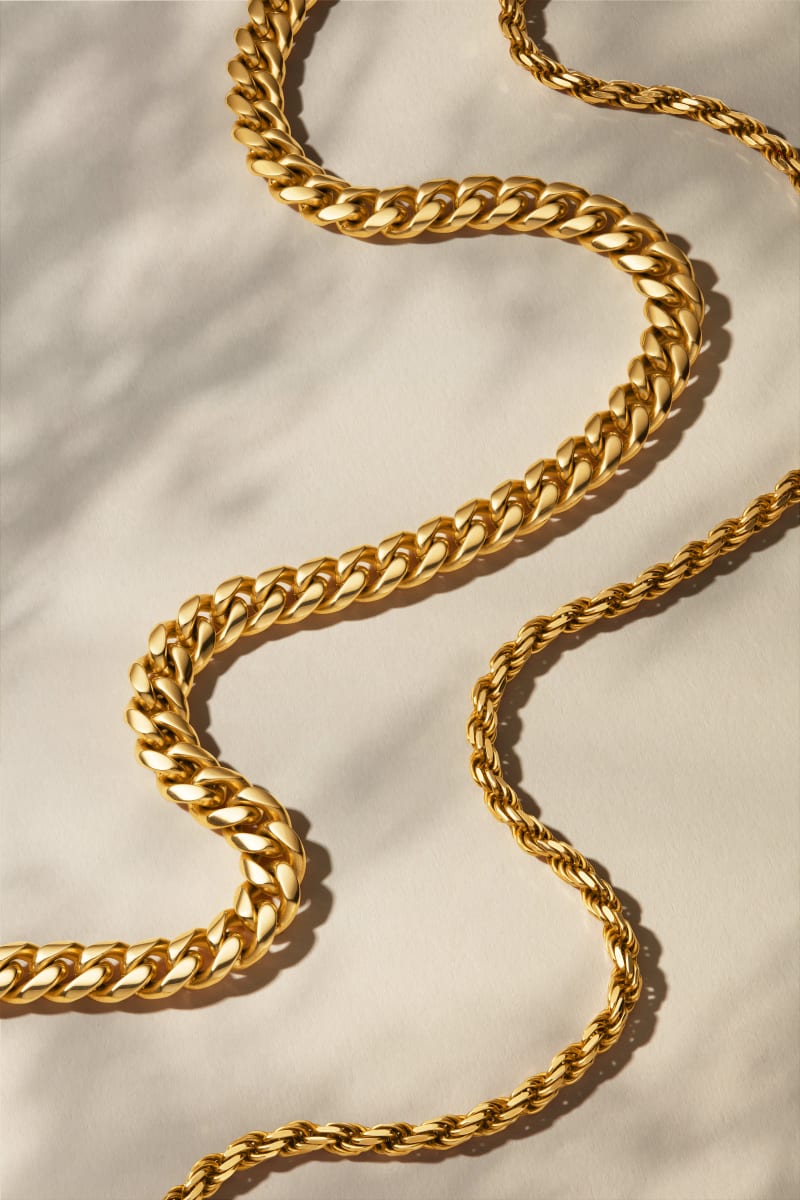Are you someone who puts on your jewelry before you walk out the door and take it off every night, or do you live in your jewelry 24/7? Our friend, TV Personality, Johnny Middlebrooks, wears his JAXXON chain all the time. “I rock this JAXXON chain every day. I wear it to the gym, I wear it in the shower. And I even go swimming with it.”
So this begs the question, “is gold waterproof?” We love when fashion meets function, so we’re here to answer your questions about waterproof gold and if it really exists.
Waterproof vs Water Resistant
Most people think of rubber rain boots or trench coats when it comes to waterproof and water-resistant materials. But with jewelry, it’s a little trickier. Most of us live in our jewelry, sleeping with earrings in and showering with our chain necklace on. Not to mention how often we wash our hands during the day, getting our rings wet. So, when considering a gold jewelry piece, can you get it wet, and what happens if you do?
Let’s start with the definitions of these terms. Waterproof technically means that it’s impervious to water, no matter how much time the item spends in the water. If something is water resistant, the item can resist water penetration to a certain degree, but not entirely.
Pure gold is technically waterproof since you can get it wet and not be affected. But over time, it will start to lose its shine. 24k gold isn’t often used for jewelry since it can be too soft, so let’s take a look at how water affects 10k, 14k, and 18k gold. Does gold tarnish? Solid gold jewelry with these karats can get wet but will tarnish if they aren’t taken care of. But is water really the problem, or is it what’s in the water?
Harsh Chemicals
Clean water is pretty harmless for solid gold jewelry. But remember, 10k, 14k, and 18k gold are made with other alloyed metals, and those can react with water. You can learn more about the differences between 10k vs 14k gold in our informative article.
Back to those pesky chemicals. The chlorine in swimming pools and hot tubs can be harmful to gold, especially if you’re in a public pool as those tend to have more chlorine. Household cleaners like bleach can also really damage your gold rings and bracelets if you keep them on while doing chores. Best to leave those in a jewelry case or on the dresser.
While your hand soap and body wash aren’t too dangerous, some ingredients might tarnish your gold items. We also advise against spraying cologne or perfume directly on your neck while wearing men’s chains. We want you to smell good, but there are limits, ok?
Bad Weather
We’re pretty lucky to be based in sunny Southern California and have nice weather year-round. But for those of you who experience humidity and snow, can the weather be harmful to your jewelry game?
High humidity levels can tarnish your gold faster than places with little to no humidity. So, you’ll want to store them in a dry place and clean them more often. If you need help with that, we can tell you how to clean a gold chain.
Risky Business
If you like to stay fully styled in your gold jewelry while at the beach or in the pool, we support you! But you should know some of the risks before diving in wearing your favorite chain.
It’s possible your chain necklace clasp could come undone while you’re swimming, surfing, or jet skiing. Your favorite ring might slip off while you’re doing laps in a cold pool. While exercise can cause jewelry pieces to fall off, you may not know that colder water can cause your fingers to shrink and rings can fall off more easily. You might be able to dive to the bottom of the pool and save your lost piece, but that’s gonna be much harder in a lake or ocean. We all remember how sad Kim Kardashian was when she lost her diamond earring in the ocean. We’re just trying to prevent you from getting upset!
Solid Gold vs Gold Bonded
At this point, we are confident in telling you that you can get your solid gold pieces wet if you follow and keep a few things in mind. If you don’t own solid gold jewelry and you’re not in the market to spend the extra money on fine jewelry, that’s ok. Johnny Middlebrooks shared with our friends at The Journey, “That doesn’t mean you need an expensive solid gold chain to wear it in all the elements.” So, which should you choose, solid gold vs gold bonded?
Gold bonded
Gold bonded jewelry stands up pretty well to water, just like solid gold! With a 925 sterling silver base metal and several layers of 14k gold, we recommend following the same rules as how you’d treat solid gold. We do recommend patting your gold bonded jewelry off after it gets wet, but otherwise, it can stand up against your hardest workouts and tropical vacations.
Gold plated
A gold plated jewelry piece may not fare as well against the elements and your active lifestyle as well as gold bonded and solid gold. Due to a thin gold layer (think less than 1%) and a brass or nickel base metal, the gold can tarnish and eventually rub off completely from moisture.
If you want sweat-proof jewelry, stick with solid gold, gold bonded, and sterling silver. One exception to this suggestion is PVD plating. PVD coating (physical vapor deposition) is different from gold plated pieces because it provides a vacuum seal process that protects the gold along with titanium for a piece that’s more resistant to scratches and water. Many of our pendants are PVD-coated marine-level 316L stainless steel. How’s that for waterproof jewelry?
It’s up to you if you want to get your gold jewelry wet. We’re here to help you take care of your collection next time you get caught in the rain or ride the waves.




